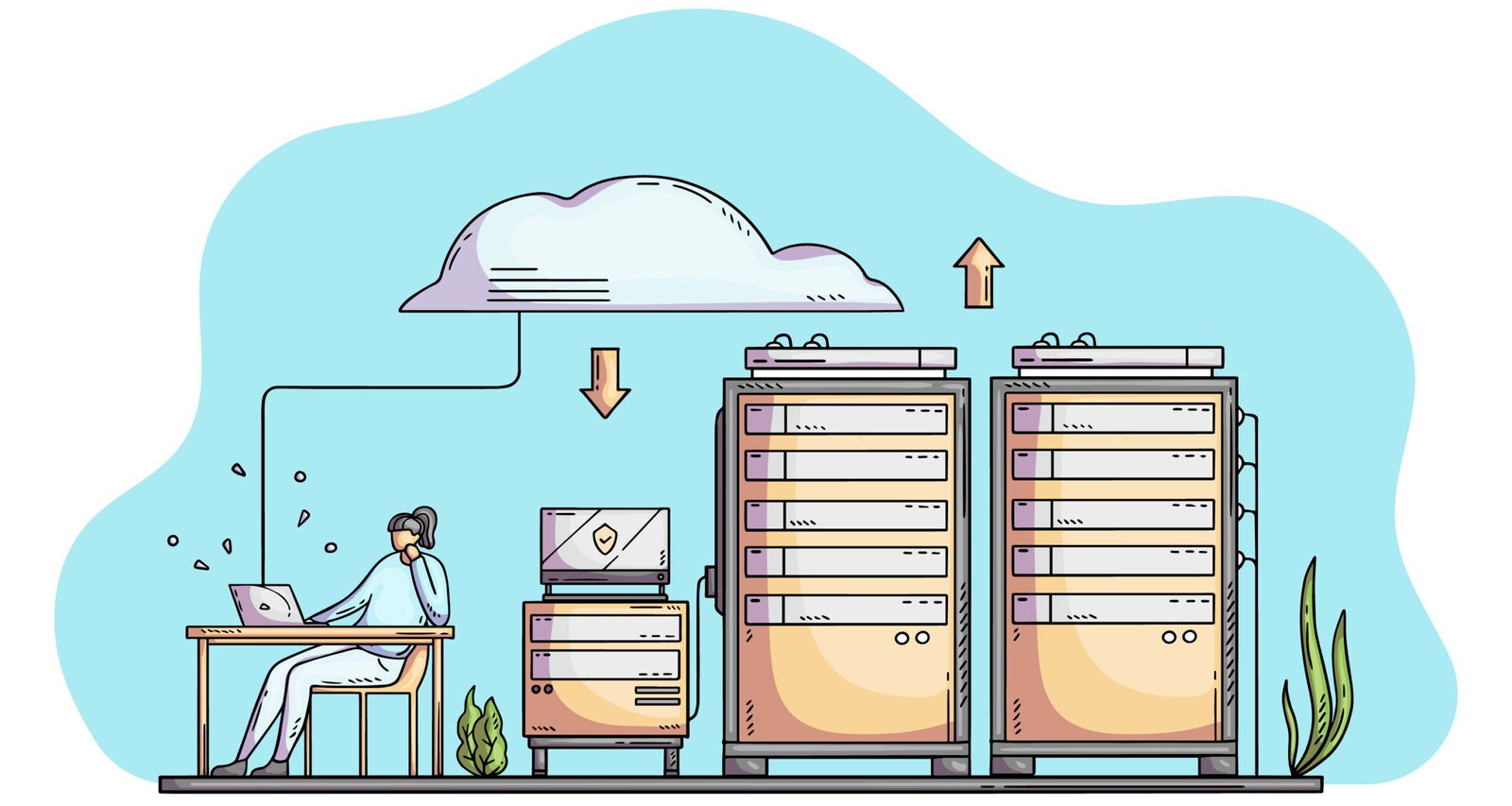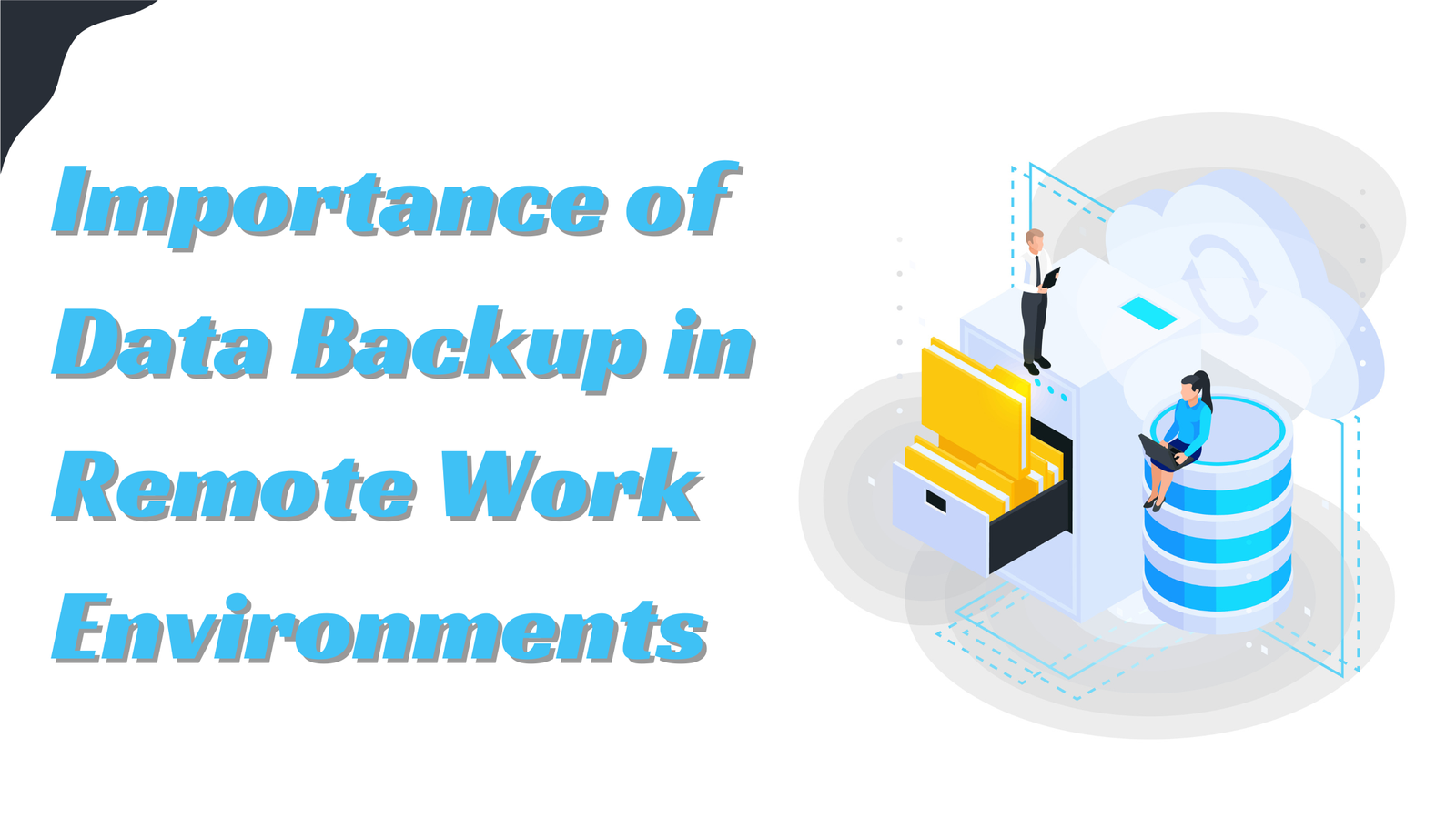The Importance of Data Backup in Remote Work Environments
- 1 Importance of Data Backup in Remote Work Environments
- 1.1 Remote Work and Data Vulnerability
- 1.2 Ensuring Business Continuity
- 1.3 Protecting Against Cyber Threats
- 1.4 Organizing Data Sharing and Access
- 1.5 Compliance with Data Protection Regulations
- 1.6 Implementing Effective Data Backup Strategies
- 2 Conclusion
The global shift towards remote work has transformed businesses’ operations, creating a more flexible and dynamic work environment. While remote work offers numerous advantages, such as increased productivity, cost savings, and enhanced work-life balance, it also presents unique challenges concerning data security. In remote work environments, ensuring the safety and integrity of business data becomes paramount.
This is where robust data backup strategies come into play, serving as a critical safeguard against data loss and ensuring business continuity. Azure Devops backup, a proven and effective solution, stands ready to mitigate these risks and protect your business data in remote work environments.
Importance of Data Backup in Remote Work Environments

Remote Work and Data Vulnerability
A number of the new work settings fostered by the COVID-19 pandemic are invariably more susceptible to business data risks. Categorized under telecommuting or remote access, employees using corporate networks from different places and using other devices put organizational data in a vulnerable position of being compromised by cyber hackers, device crashes, and sometimes, carelessness. While in conventional office environments, the IT personnel can monitor data security closely and apply various measures, the remote settings could be more effective. Therefore, businesses should opt for advanced data backup solutions that safeguard their valuable data to reduce such risks.
Ensuring Business Continuity
The most crucial aspect of implementing data backup strategies in remote work environments is the need for quality provision. They may be lost in many ways, such as hardware breakdown, virus attack, hacking, software damage, fire, or any other event resulting in data loss. When employees operate in different working environments, these risks are increased, which makes data backup a vital part of a solid business continuity plan.
The ability to back up data frequently is an excellent way to guarantee that companies can recover essential data as soon as possible in the case of business data loss. These elements are instrumental in sustaining customer confidence and regulatory compliance, and continuing organizational operations when encountering adversity.
Protecting Against Cyber Threats
The COVID-19 pandemic has brought many businesses into new and uncharted territory for cybersecurity threats, resulting in more danger to enterprises. Hacking, like ransomware attacks, phishing, and malware, affects data negatively, leading to financial losses, reputational loss, and legal consequences. These cyber-threats include: Therefore, one can minimize these risks using a proper data backup strategy such as Azure Devops. It also helps safeguard against downtime or permanent loss of information if a cyber-attack targets and overwrites the primary data; businesses can recover their data from the backup copies.
Organizing Data Sharing and Access
It is critical to ensure that work-related data is easily accessible and a smooth workflow across the team. Flexible working also significantly impacts data backup solutions because these solutions enable employees to work with updated information from any place and using any device. In particular, cloud-based backup services have tangible benefits since remote teams can access the backup copy with necessary materials in real-time, collaborate, and make decisions effectively. This helps increase productivity and cultivates a flexible and receptive organisational culture in which employees can achieve optimal output irrespective of their location.
Compliance with Data Protection Regulations
Legal frameworks like the GDPR, CCPA, and HIPAA require high data protection standards. Companies that engage in business activities in remote work areas must obey these regulations to avoid prosecution. Proper data backup measures are vital in complying with the rules provided.
Backup policies serve as a complementary way of securing information to prevent data leakage or loss and recover lost data in case of an attack. Further, it would also be helpful to have a dependable backup system that helps underline the business’s dedication to safeguarding data, which is favourable to its image and credibility with its clients and other stakeholders.
Implementing Effective Data Backup Strategies
To protect data in remote work structures, organizations must consider using multiple layers of approaches to backup data. This includes the choice of backup solutions, policies that are put in place for backup, and backup solutions that are tested for efficiency. Cloud-based services like Backrightup have numerous advantages, including that the system can be scaled up and down depending on the business needs it is being used for. Backrightup is flexible and can be used in different ways.
These solutions help businesses implement backup automation, which decreases the chance of errors and keeps data backed up periodically without being manually controlled. Companies should also ensure they have encrypted their backup data and use access control mechanisms to add to the security layer.
Conclusion
This revelation has led to several changes in how a business takes care of its data, especially adopting remote working. In this new environment, it becomes vital to underline the need for sound data backup strategies. It is possible to save data against all sorts of risks and use reliable backup solutions to continue the business and adhere to the data protection rules. In addition, data backup guarantees the optimization of data accessibility and sharing to increase efficiency and profitability in remote working.

















